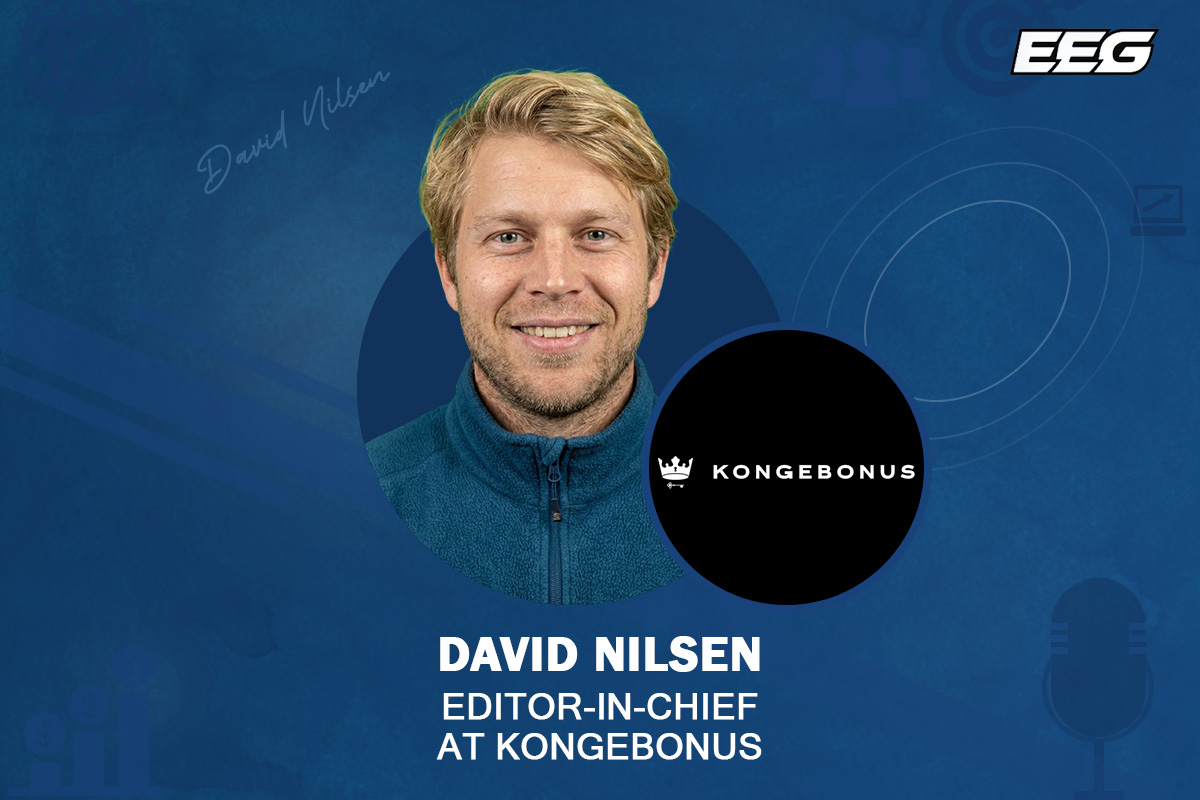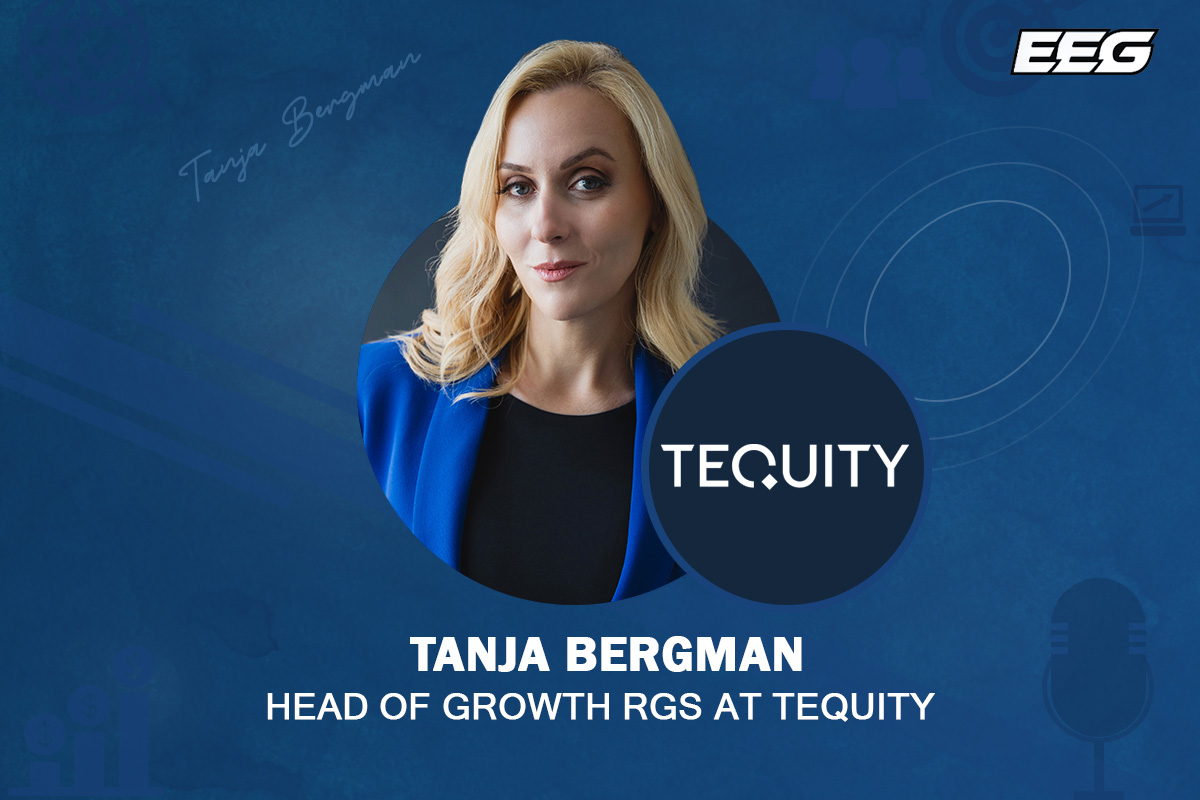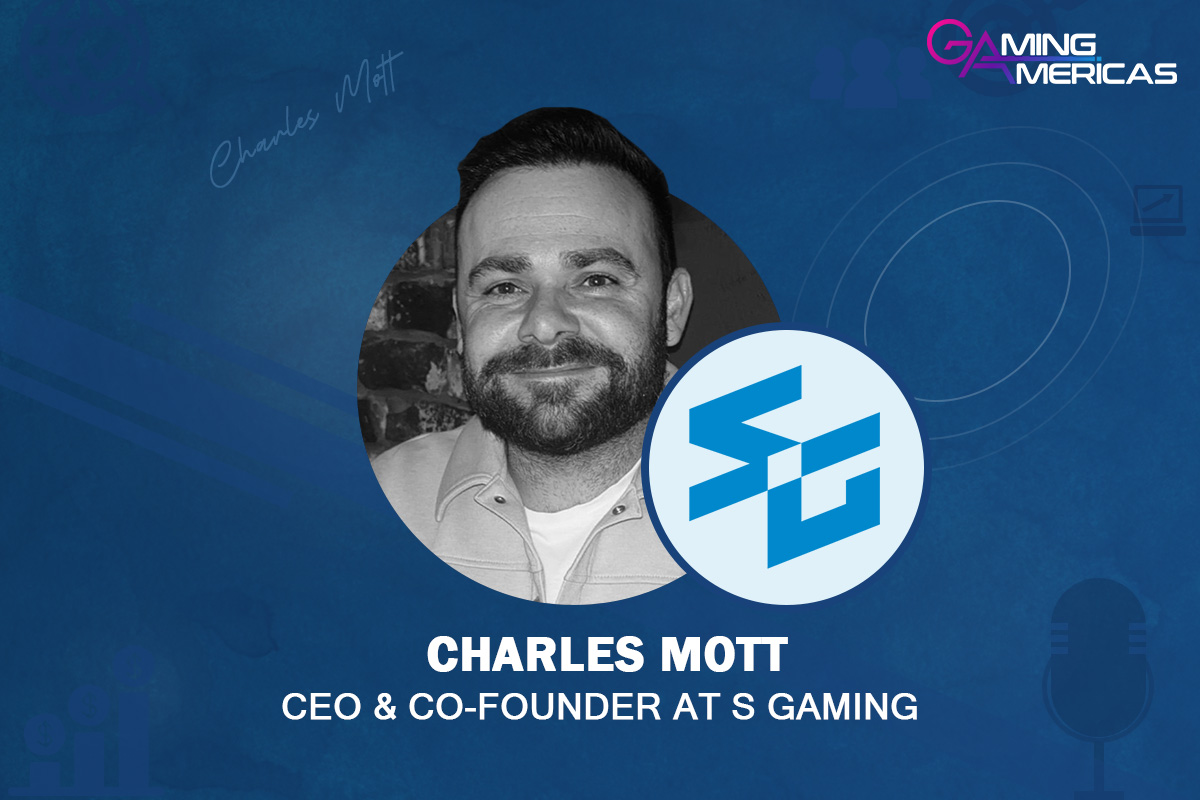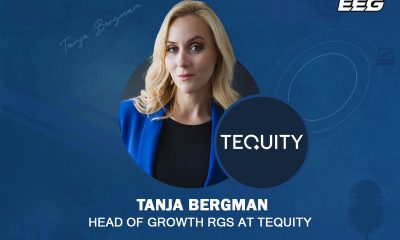Interviews
Exclusive Safer Gambling/Harm Prevention Roundtable

The latest EGBA reports have indicated that not only are members sending more safer gambling messages than ever before, but also that these messages are becoming increasingly personalised. How important do you think it is for gambling companies to keep looking at the topic of safer gambling/harm prevention and finding more tailored ways to reach their at-risk customers?
Oliver Niner (ON): PandaScore is on the supplier side of the industry, but responsible gambling is very important to the business and everyone who works for it. We go to great lengths to ensure that the data that we provide to our operator partners allows them to do the best job they can of looking after their players, that their activity can be monitored and that any potential problem gambling issues can be picked up early. It’s not our responsibility to protect players, but we do everything we can to facilitate safe gaming. This includes ensuring that all participants in the esports matches that we provide data and odds for are over the age of 18 and we also have a blacklist of matches and tournaments where the likelihood of collusion and other issues are high. This means that we only provide data and odds for matches that are fair and where all players are over the age of 18. Personalisation is a must for operators across all areas of their business, and responsible gambling is no different. If you really want to engage a customer, you need to connect with them on a personal level.
Alex Iaroshenko (AI): Having a solid policy in place for safer gambling/harm prevention and paying close attention to related technology such as Fraud Detection Systems (FDS) are two of the most important things an iGaming business needs to do. When they can prove to the industry that they’re focused on these matters and are committed to developing more sophisticated ways of dealing with at-risk players, their business obviously becomes a lot more trustworthy and they’re likely to attract greater cooperation from companies on the B2B side in future. From the B2C side, speaking openly about safer gambling and how you intend to protect your players also improves your standing in the eyes of bettors as it reassures them they’re playing in an environment where their best interests are being looked after.
What is it about personalised messaging that you think makes it more impactful with customers? Does following betting behaviour closely and responding to events in real time potentially enable gambling operators to intervene at the exact moment where customers are most at risk?
ON: So this isn’t really in PandaScore’s wheelhouse but I am a firm believer that personalised messaging and closely monitoring betting behaviour are highly effective when it comes to improving responsible gambling. There are powerful technologies in the market that allow for real-time monitoring of player behaviour, with the first sign of problem play flagged, often automatically. So long as the operator has the right processes in place, individual players can then be engaged and supported before it becomes a major issue for them. As a provider, we do everything we can to support our operator partners in their efforts to protect players – as mentioned above, this includes providing them with the best data only from tournaments and matches where players are over the age of 18. Ultimately, responsible gambling requires commitment from all stakeholders and as a supplier of data and odds, we are doing everything we can to contribute to this effort.
AI: Absolutely. By closely following a customer’s betting activity and responding to certain “red flag” behaviours in real time, gambling operators can potentially intervene at the precise moment where their messaging will be at its most impactful. This is often referred to as responsible gambling or harm minimisation and has become a key part of overall safer gambling strategy, with many gambling regulatory authorities now requiring operators to issue these personalised interventions and use other RG measures to protect vulnerable customers. Generally speaking, a personalised message is always going to be more likely to get a customer’s attention than a generic one, and while this can be beneficial for safer gambling purposes, operators should ensure these tailored communications are used responsibly elsewhere and aren’t encouraging users to engage in harmful gambling behaviour.
In light of the above, how big of a role do you think AI has to play in improving the protection that’s offered to at-risk players? Presumably if gambling operators are able to monitor betting activity and issue appropriate safter gambling messaging automatically, it will eliminate human error and ensure that no players fall through the cracks when they’re at their most vulnerable?
ON: PandaScore is a big proponent of AI – so long as it is used in the right way – and we have embraced this technology and used it extensively when building our product offering. AI can absolutely be used to improve responsible gambling, especially when it comes to monitoring player behaviour and patterns to identify potentially at-risk players early. That said, AI needs to be combined with human oversight in order for it to be deployed responsibly and for operators to be able to leverage the full potential of the technology, especially when it comes to safe gaming. By combining humans and AI, the technology can be further developed and refined specifically for the purpose of safe gaming so that it keeps getting better at identifying potentially at-risk players and then delivering the right messaging at the right time.
AI: While AI can significantly enhance responsible gambling measures, it’s important to note that it should always be used in conjunction with human oversight and viewed through a lens that also takes ethical considerations into account. At this precise moment in time, human expertise remains crucial in interpreting AI-generated insights and using them to make decisions that balance player protection with a positive user experience. All AI systems must therefore be designed with transparency, fairness and privacy in mind to ensure they are used responsibly and ethically. Essentially, a good AI system should act as a reliable co-pilot that can track, inform and make recommendations when there’s a safer gambling issue, but it’s down to staff to interpret this data and decide the best course of action.
In terms of safer gambling, one of the most encouraging signs for the industry is that in addition to operators, the players themselves are also becoming more engaged with responsible gambling, with 30% voluntarily using safety tools like time outs, bet limits and self-exclusion. Do you think this shows operators are doing a good job in promoting these tools and making them easy to use?
ON: I think the majority of players are self-aware and understand the need to stay in control of their play. This is certainly the case with esports players and bettors, and if this continues to filter down into the wider gambling world then that’s absolutely a good thing. Of course, there is always more that can be done, and operators should be more proactive when it comes to responsible gambling. The market leaders are doing well in this regard and are setting a solid standard for others to follow. There is a lot that can be learned from the esports space, too. It is very much community-driven with players connecting via platforms such as Discord where they openly talk about their gaming activity in what they consider to be a safe environment. This will hopefully trickle down into traditional sports betting, providing operators with an opportunity to better engage players in an authentic way and share messages around safe gaming rather than pushing them at players, which is the case now.
AI: Ultimately, responsible gambling is a shared responsibility between operators and players. The former have an important role to play in providing necessary tools and resources to their customers, but the latter must then take the responsibility to use them wisely and seek help when they feel it’s necessary. As such, a collaborative process between the industry and its customers is key to fostering a safer and more responsible gambling environment; and the stats we’re seeing indicate this approach is starting to take root. So yes, operators should be given credit for promoting these tools and making them easy to use, but we must also praise customers for being responsible and taking control of their situations.
One of the many services available at BETBAZAR is KYC, which obviously assists clients in ensuring their depositors are of age and able to gamble responsibly. How important are services like KYC in helping operators quickly/reliably verify their customers so they can better protect them?
AI: KYC services are essential tools for operators in the gambling industry that allow them to verify the identity of their customers, prevent fraud, comply with regulations and promote responsible gambling. By implementing KYC processes, operators can better protect their customers, uphold the integrity of their platform and – in some cases – even prevent harmful gambling behaviour before it happens. The key to a good KYC process is having a system in place that enables the operator to get all of the data that they need approved and verified quickly, while not making things complicated for the user and discouraging them from completing their sign-up process. The tools that we provide at BETBAZAR certainly do just that, ensuring a seamless process for both the client and their customers
While safer gambling/harm prevention measures are obviously very important, do you think there needs to be a balance struck between protecting players and ensuring they’re not too restricted? It seems that if you impose too many checks, verification processes or controls on players gambling, you run the risk of driving them directly to unsafe sites with fewer regulations…
ON: There does need to be a balance. One way this can be achieved is to make improvements to the user experience and incorporate responsible gambling tools into that. The front-end experience has changed very little over the past five years or more, and there is space for operators and suppliers to pioneer new approaches here. Onboarding needs to be fast and frictionless, but with smart design, this can be achieved while bringing responsible gambling to the forefront. The underlying technology required for this is readily available, but most operators have focused their use of this on ensuring payments are rapid and bonuses personalised, rather than how to better integrate safe gaming into the overall player experience. A change in tack here could have a profound impact on safe gaming.
AI: Having overly stringent safer gambling/harm prevention measures can indeed drive players to unregulated or unsafe gambling sites, which can pose an even greater risk to their well-being than if the site they originally wanted to play at was a little more relaxed in the first place. As such, both regulators and operators must work together to ensure a suitable balance is struck between protecting players and maintaining a positive user experience. As mentioned above, KYC checks are essential but should be designed to be as seamless and non-intrusive as possible. Then, rather than solely relying on restrictions, operators should invest in educating players about responsible gambling practices and empower them to make their own decisions. To complement this, operators may also consider using a tiered system where customers choose the level of protection that best suits them.
Finally, is there anything that you think the online gambling industry in general should be doing differently when it comes to promoting safer gambling and harm prevention? Should there be a more open dialogue between regulators and operators when it comes to deciding policy/strategy?
ON: There should always be an open dialogue between regulators, operators and other stakeholders. Collaboration is key to progress, and this must come from the top down. Operators know they must protect players and are doing this, but there is always room for improvement. Esports is all about community and I think the wider gambling industry would do well to look to come up with community-led initiatives that bring players together and allow them to engage with them in a more authentic environment. They should also look to redeploy their technical capabilities into responsible gambling – they can profile players and segment them on a granular level for the purpose of marketing and bonusing, but are they really using these capabilities to be more benevolent and take player protection to the next level?
AI: As we’ve outlined above, there are several areas in which the online gambling industry could improve its approach to promoting safer gambling and harm prevention. These include increased transparency, enhanced education for players, greater collaboration with regulators – including research and data sharing – technological innovation and having regular audits and assessments of safer gambling practices to establish what’s working and what isn’t. At the end of the day, promoting safer gambling is a shared responsibility between operators, regulators and players, so by fostering an open dialogue, sharing data and insights and working together, the industry can create a safer, more responsible gambling environment that protects players’ well-being while preserving the integrity of the industry
Interviews
Inside the Kongebonus Awards: What Norway’s Players Are Telling the iGaming Industry

As the only iGaming awards originating from Norway, the Kongebonus Awards are decided entirely by open player voting, offering a rare, unfiltered view into what truly resonates with a dedicated gaming community. Kongebonus Editor-in-Chief, David Nilsen, explains how this year’s results reflect shifting player expectations, highlight both emerging and established studios, and contribute to wider industry conversations around quality, innovation and long-term engagement.
The Kongebonus Awards are now in their fourth year. How have you seen them evolve since the first edition?
Since the first edition, the Kongebonus Awards have grown both in reach and in significance. What started as a way to highlight standout games for our Norwegian audience has developed into a recognised annual moment where player sentiment is clearly reflected back to the industry. Each year we see greater engagement from the community and more awareness among studios and suppliers about what the awards represent. The structure has also matured, with categories that better capture the diversity of modern game development. Most importantly, the awards have become a consistent reference point for which games and providers have truly connected with players over the past year, giving the results increasing weight within the wider iGaming conversation.
This year’s awards were presented in connection with ICE Barcelona. How important is it to connect a Norwegian, player-driven initiative with the wider international industry?
Connecting the awards to an international event like ICE Barcelona helps bring local player insight into the global industry spotlight. While the voting comes from Norwegian players, the studios and games involved operate across many markets. Presenting the results in that setting underlines that player preferences in Norway are part of wider trends in iGaming. It also allows international stakeholders to see how a Nordic audience responds to different styles of games, mechanics and themes. That perspective can be valuable for product planning and market strategy.
This year’s winners were decided through open public voting. Why is it important that the results reflect the voice of players so directly?
Having the winners decided through open public voting ensures the results are grounded in real player experience. The recognition comes directly from the people who have spent time with the games, formed opinions and chosen their favourites. That gives the awards a strong sense of authenticity. It moves the focus away from internal industry perspectives and places it firmly with the end users. For studios, this kind of recognition signals that their work has genuinely resonated with players, not just performed well commercially. Player-led results offer a clear and transparent indicator of which games and providers have built lasting appeal, and that makes the outcomes especially meaningful within the industry.
The awards focus not only on commercial performance, but also on quality, innovation and player experience. From this year’s winners, what stood out most to you?
What stood out most was the balance between creativity and accessibility. Players clearly reward innovation, but only when it is paired with strong execution and an enjoyable overall experience. Many of the recognised titles combine distinctive mechanics with clear game identity and smooth gameplay. There is also evidence that consistency matters. Studios that repeatedly deliver engaging, reliable experiences tend to build strong followings, and that loyalty is reflected in the voting.
How do categories such as Rising Star Game Developer and the Readers’ Hall of Fame help ensure the awards spotlight both emerging studios and more established names?
These categories make sure the awards reflect the full spectrum of achievement in the industry. The Rising Star category gives visibility to newer studios that are already making a strong impression with players through innovation and creativity, even if they do not yet have the scale of the largest providers. In contrast, the Readers’ Hall of Fame recognises games that have achieved lasting popularity and become long-term favourites. Including both perspectives shows that excellence is not limited to one stage of growth. It highlights that players value both fresh ideas and proven experiences.
Looking ahead, how do you expect the awards to continue growing, and what role do you see Kongebonus playing in shaping player-led conversations in the industry?
As player expectations continue to change, the awards will develop alongside them. The aim remains to document and highlight the studios and games that genuinely stand out from a player perspective. Over time, this may mean refining categories or exploring new ways to reflect emerging trends, while keeping open voting at the core. Kongebonus will continue to act as a bridge between players and the industry, translating community sentiment into insights that studios and suppliers can learn from. By keeping the focus on player experience and feedback, the awards can play a growing role in encouraging the industry to prioritise quality, innovation and long-term player engagement.
To find out more about this year’s Kongebonus Awards and see the full list of winners, visit: https://www.kongebonus.com/nyheter/vinnere-av-kongebonus-awards-2025/
The post Inside the Kongebonus Awards: What Norway’s Players Are Telling the iGaming Industry appeared first on Eastern European Gaming | Global iGaming & Tech Intelligence Hub.
Interviews
Scaling innovation through the launch of Tequity Publishing

Following the announcement of its new publishing vertical and the successful debut of Royal Drop, we sat down with Tanja Bergman, Head of Growth RGS at Tequity, to discuss how this new arm is set to dismantle technical barriers for ambitious studios and why scalability is the new frontier for the ‘Burst Games’ genre.
Tequity has just officially launched its Publishing vertical. What was the primary catalyst behind this move?
The industry is currently in a fascinating place. There is no shortage of creative talent among studios, but there is a massive technical bottleneck. We have seen so many ambitious studios with incredible concepts – especially those moving beyond traditional slots – who have been getting bogged down in terms of getting those concepts out into the marketplace.
The catalyst for Tequity Publishing was simple. We wanted to break down those technical barriers. By handling the infrastructure, distribution, and compliance frameworks, we allow studios to do what they do best, which is build outstanding games. It’s about speed-to-market without compromising on the quality or the vision of their content.
The launch coincides with the release of Royal Drop. How does this game, and the partnership with Mirror Image Gaming and The Fortune Engine, showcase what Tequity Publishing is all about?
Royal Drop is the perfect proof of concept. It’s a collaboration that highlights three important pillars of modern game delivery. You have Mirror Image Gaming bringing that fresh, video-game-influenced Burst Games energy, The Fortune Engine provide the math tools and templates, and Tequity Publishing offers the global scale and distribution pathway.

It shows that when you remove operational friction, you can create a game-first experience that appeals to a new generation of players who want something more interactive than a standard 5×3 reel.
Tequity Publishing offers two models: RGSaaS and RGS-to-RGS. Can you walk us through the strategic benefits of each?
Flexibility is key, because no two studios are at the same stage of their journey. The RGSaaS model is our full-service offering. It’s designed for studios that want to focus 100% on the creative side. We provide the entire infrastructure and publishing framework and it is essentially a business-in-a-box for game creators.
The RGS-to-RGS model is a more streamlined, tech-first approach for studios that already have their own RGS but lack the distribution muscle. It allows them to plug into our growing operator and aggregator network instantly. Both models are built on the same philosophy: helping studios reach parts of the market they otherwise couldn’t access on their own.
You mentioned reaching new generations of players. How does this vertical specifically empower studios to innovate in ways they couldn’t before?
When a studio is concerned about how they are going to integrate with a multitude of different operators or how to navigate complex jurisdictional requirements, they tend to play it safe. They stick to what they know.
By taking that weight off their shoulders, we give them the opportunity to be brave. Studios like Mirror Image Gaming are pushing the boundaries of modern iGaming, taking influences from the video game world. This is exactly what the new generation of players is looking for. We provide the scalability so that these niche, innovative ideas can achieve mass-market impact.
It’s been a busy period for Tequity, following the success of your Originals series and the iBankroll partnership. How does the Publishing vertical fit into the broader Tequity roadmap for 2026?
It’s all part of becoming the ultimate technology partner for the gaming industry. Whether it’s our streamer-friendly Originals or our Bankroll-as-a-Service offering, the goal is to provide scalable, customisable solutions. Tequity Publishing is the natural evolution of that mission. We aren’t only providing the tools anymore, but also the pathway to the player. Looking ahead, you can expect a series of further launches through our three-way collaborations. We’re proving that the barrier to entry for innovation has never been lower.
Finally, for studios looking to scale quickly, what is your main message to them?
Don’t let technical noise drown out your creative signal. If you have a game concept that breaks the mould, you shouldn’t have to spend years building the distribution architecture to get it seen. That’s what we’re here for. We want to help you launch at a speed and scale that matches your ambition, so that you can make a significant splash in the industry.
The post Scaling innovation through the launch of Tequity Publishing appeared first on Eastern European Gaming | Global iGaming & Tech Intelligence Hub.
BetMGM
Breaking America with BetMGM

We speak to Charles Mott, CEO & Co-Founder at S Gaming, about the provider’s move into the US market with BetMGM and why more casual gameplay hits the mark with players stateside
Congratulations on your deal with BetMGM in the USA. Why is this such a milestone market launch for S Gaming?
The deal with BetMGM marks our hotly-anticipated launch in the US market, and sees our games go live to players in core regulated states such as New Jersey, Pennsylvania, West Virginia and Michigan. We see huge potential for our content in the North American market, and to make our debut with such a high-calibre operator is a testament to this. The US is still just finding its feet as a regulated online casino market, and our games, with their focus on sustainability and high entertainment, are the perfect fit for audiences who are used to land-based slots and are increasingly moving online. They are simple, easy to understand and play, and ultimately deliver tons of fun over longer playing sessions – just like the slot machines found on the floors of casinos in Las Vegas and beyond.
Just how important was it to go live with a tier-one operator like BetMGM? And how will the deal allow you to quickly build momentum in the US?
It’s mission critical. Going live with BetMGM allows us to build immediate trust with players, tap into a large and loyal playerbase, and simultaneously enter multiple regulated iCasino states at the same time. Now that we are up and running with BetMGM, we are turning our attention to striking partnerships with other operators active in the market. It’s pretty much the same blueprint that we’ve followed in our home market of the UK where we are now live with all but a handful of brands – something we have been able to achieve in a little over two years. We know the US is a slightly different market, but we are confident in our approach to game development and, as we gather more data on how US players interact with our games, will use this feedback loop to guide our product roadmap going forwards so that each title is better than the last and more suited to the preferences of US players.
You mentioned that your games are aimed at more casual players. How does this align with the preferences of US consumers?
If you walk onto the gaming floor of any Las Vegas casino, you’ll see row after row of slot machines. Increasingly, these machines are designed to keep players entertained for longer through gripping gameplay and regular wins. A lot of online slot content delivers high risk/high reward gameplay, where players can quickly clear through their balance as they hunt down big wins – wins that don’t land all that often. In a market where operators care deeply about retention and lifetime value, games that keep players spinning for longer really matter. Our approach to producing sustainable, fun games for players in the UK and Europe has allowed us to not only stand out but to engage players at scale, and we are confident players in the US, especially those who enjoy land-based slotting, will also be drawn to them at scale.
Has launching in the US been a major undertaking for S Gaming, or did it prove to be plain sailing for the most part?
When planning our move into the US market we identified two routes. We have our own remote game server, so we could build on that, secure licences in each state we wanted to enter, and then deploy our content directly with operators. The other option would be to work with a third-party RGS provider that already has the licences and integrations we needed. While the first option might sound like the best, in reality, especially for a smaller studio, the cost of and resources required for securing individual state licences can be prohibitive. So instead, we joined forces with Gaming Realms as they have the cutting-edge RGS and licences (in both the US and Europe) we were looking for. This means we simply need to build a US version of each game on the Gaming Realms RGS and can then deploy content with the wide range of operator partners they are connected with in regulated iCasino states across the US.
Tell us more about the initial run of games you’ve launched with BetMGM.
We’ve launched the partnership with Barnyard Bash Chicken Chase which will be followed by Triple 7 Jackpot in February and Cat and Mouse Collect in March – with one new game a month to follow as we build out our US portfolio. If players were to try just one of our games, it would be Barnyard Bash Chicken Chase. It gets players clucking as they spin the reels, collect Eggs and add them to the growing Nest – the more eggs collected, the bigger the Nest Egg becomes. Not only that, Eggs can randomly activate the matching colour-coded Nest Egg and award entry to the Chicken Trail feature, drop Egg-stra Free Spins or lay an Instant Prize.
But once they’ve tried it, they’ll definitely want to take Triple 7 Jackpot for a spin. This classic slot is dripping in neon action – the Triple 7 feature is always on screen but is locked until a spin lands three Bonus 777 symbols. This unlocks the feature with on spin awarded, giving players a shot at the 500x Jackpot prize. Free Spins are also up for grabs with seven Free Games awarded when three Scatters land in the base game.
Finally, Cat and Mouse Collect is a playful, feature-rich slot built around a simple but engaging Collect mechanic. Players pin the reels, collect up the cheeses and feed the hungry mice until they’re fit to burst. Green plates will serve up an instant prize, Blue will start the wild and wacky Cheese Chase and Red dishes out some feisty Free Spins. With regular feature triggers and plenty of on-reel interaction, it’s designed to keep players engaged from spin to spin without relying on extreme volatility.
What does success in the US look like for S Gaming over the next 12-18 months?
Success for us isn’t about one big hit, it’s about becoming a trusted, widely-distributed supplier in regulated iCasino states. Over the next year we want to significantly expand beyond BetMGM, roll out a steady pipeline of US-optimised titles and build the kind of player data and
operator relationships that let us grow sustainably. If players in New Jersey, Pennsylvania and Michigan are regularly choosing S Gaming titles as part of their core rotation, then we’ll know we’re really breaking into the market.
The post Breaking America with BetMGM appeared first on Americas iGaming & Sports Betting News.
-

 Christer Fahlstedt7 days ago
Christer Fahlstedt7 days agoPaf has halved its loss limit since 2018
-

 Aphrodite’s Kiss4 days ago
Aphrodite’s Kiss4 days agoLove on the Reels: Slotland Introduces “Aphrodite’s Kiss”
-

 Amusnet4 days ago
Amusnet4 days agoWeek 7/2026 slot games releases
-

 Bryndís Hrafnkelsdóttir6 days ago
Bryndís Hrafnkelsdóttir6 days agoNOVOVISION Implemented at the University of Iceland Lottery
-

 Denmark5 days ago
Denmark5 days agoRoyalCasino Partners with ScatterKings for Company’s Danish Launch
-

 Latest News6 days ago
Latest News6 days agoWinSpirit’s UnValentine’s Day: A New Take on February Engagement
-

 40 Treasures6 days ago
40 Treasures6 days agoCT Interactive Enters into Partnership with Mozzartbet.rs
-

 Finnish Institute for Health and Welfare6 days ago
Finnish Institute for Health and Welfare6 days agoFinland’s Health Authority Launches “2-4-2” Gambling Risk Limits Ahead of Expected Advertising Boom































